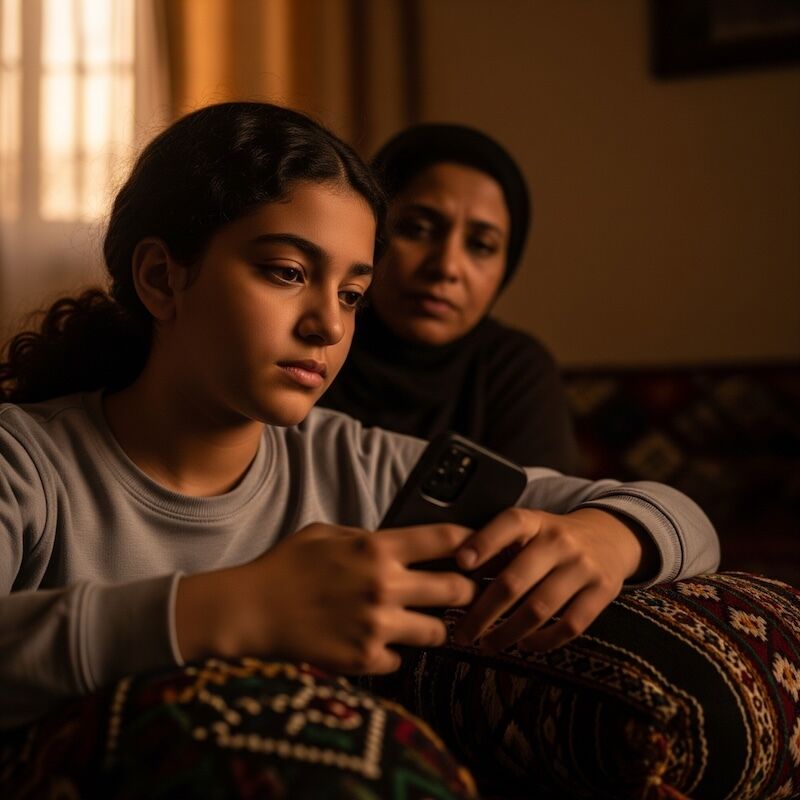Unfiltered notifications, endless photo comparisons, and mood swings tied to likes—it’s a cycle many of us have noticed in our teens. We chalk it up to “teen drama,” but a new study from the University of Cambridge, published July 16, 2025 in Nature Human Behaviour and reported by Shia Waves/Earth.com, suggests something deeper: teenagers dealing with anxiety or depression scroll about 50 extra minutes on social media daily—and 25% admit their mood actually fluctuates with every like or comment.
That’s not just screen time—it’s emotional currency. Teens with internal struggles are twice as likely to compare themselves online, and often report feeling worse afterward. Think of it this way: if your teen spends endless hours online and comes away feeling drained, anxious, or worthless, that’s not teen-hood—it’s emotional fatigue fueled by algorithms.
If you’re in Egypt, this hits close to home. Studies have shown rising anxiety rates among students here, tied to academic pressure, social shifts, and yes—digitization. While we don’t always have the data to match the Cambridge sample, the lived experience is the same: kids are seeking affirmation online and paying for it emotionally.
So, what can we do, as parents who’ve done our fair share of scrolling—but want better for them? Here’s a toolkit:
1. Acknowledge the emotional pull. Sit down without judgment, and ask “What does it feel like when you scroll late at night?” Surprise: they might open up.
2. Create little screen “breathing zones.” Dinnertime. Before bed. Just short, predictable breaks. No stovepipe rules—just consistent pauses.
3. Build emotional literacy. Teach them to notice comparison triggers (“Why did I look at her post?”) and emotional triggers (“How did that ‘like streak’ make you feel?”) Help them develop an internal dashboard.
4. Co-learn tools. Enable them to mute or fine-tune notifications, or see usage stats. Make it a bonding moment, not a lecture.
5. Replace the scroll with something tactile. A shared walk, a card game, or cooking. Small rituals that reset the emotional thermostat.
6. Validate the messier side of social media. Admit that you feel it too sometimes—like when messaging a friend goes unnoticed. That shared vulnerability deactivates the shame.
It won’t happen overnight. They’ll push back. That extra 50 minutes isn’t just screen time—it’s an emotional lifeline for them. Instead of ripping it away, we can offer a gentler lifeline: insight, space, and shared boundaries.
So next time your teen logs in, log in too—together. And hit pause with them. Because sometimes, the most powerful messages can’t be sent with emojis.







Leave a Reply
You must be logged in to post a comment.